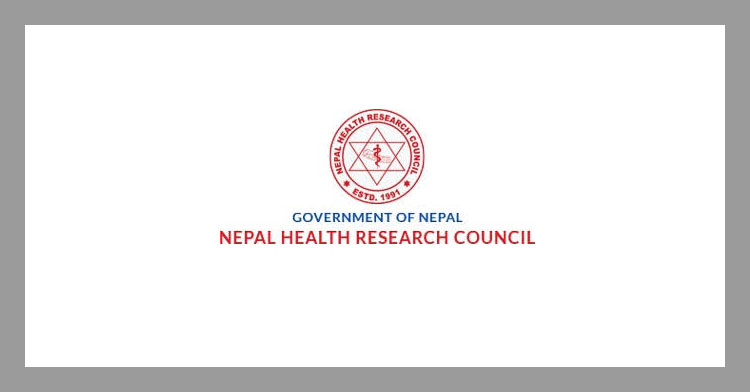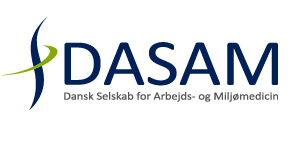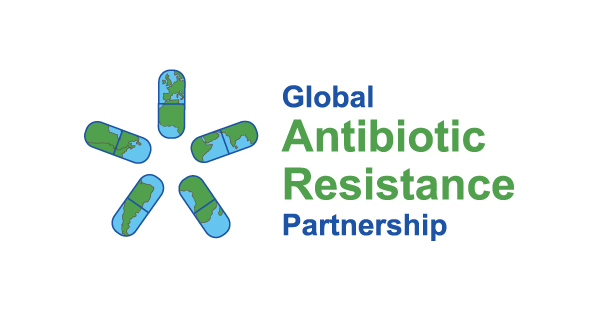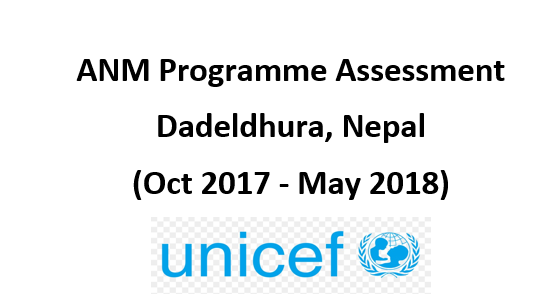Maternal mortality in Nepal remains disproportionately high compared to other South Asian countries, exacerbated by COVID-19. The 2021 Nepal Maternal Mortality study reported an MMR of 151 per 100,000 live births, peaking at 207 in Lumbini Province. Reduction of Maternal Mortality Ratio (MMR) from 239 (2016 estimate) to 70 per 100000 live births and neonatal mortality from 21 to 12 per 1000 LB by 2030 are two of the targets of health-related Sustainable Development Goal 3 (SDG3) in Nepal (NPC 2020). Addressing delays in seeking, reaching, and receiving adequate care through a comprehensive continuum of care is essential to achieving these goals.
This project is a multipronged intervention designed to enhance the quality continuum of care through a digitalized data recording system, telemedicine, engaged community participation, and co-creation to address adverse maternal and neonatal health conditions in Nepal, aiming to achieve intermediary SDG3 targets (reducing MMR to 150/100,000 LB and NMR to 16/1,000 LB) by the end of 2025.
This project aims to reduce maternal and neonatal mortality in Kapilvastu District, one of the areas with high maternal mortality in Lumbini Province, Nepal, by implementing a community-engaged, digitalized continuum of care. Using an innovative ‘hub and spoke’ model, the project will digitalize ANC records and Female Community Health Volunteer (FCHV) registers, map pregnant women using GIS, offer tele-counseling, strengthen healthcare provider capacity, and improve referral care. The project will align with the government’s MNH program and use a mixed-method approach, including evidence synthesis and quasi-experimental design. It will focus on improving labor and surgical care, monitoring SDG progress, engaging the community, and co-creating locally relevant solutions.
Archives: Projects
Investigating Ethical Approaches in Climate Change and Dengue Research in Nepal
The project titled “Investigating Ethical Approaches in Climate Change and Dengue Research in Nepal” funded by World Health Organization(WHO) focuses on addressing the ethical challenges in research related to climate change and dengue fever. Nepal’s vulnerability to climate-related health issues, due to its geography, socio-economic conditions, and environment, emphasizes the need for research that prioritizes equity, sustainability, and the well-being of affected communities. Dengue, spread by Aedes mosquitoes, has become a major public health concern of Nepal, affecting all districts due to factors like global warming, urbanization, and inadequate control measures. This project stresses the importance of ethically guided research to address these growing challenges.
The project’s objective is to develop a comprehensive understanding of the ethical principles, frameworks, and best practices that can guide climate change and dengue research in a manner that promotes equity, inclusivity, and the wellbeing of affected communities in Nepal. Adopting a sequential explanatory descriptive design, it employs mixed methods such as literature reviews, stakeholder interviews, and case study analysis. By engaging researchers, policymakers, community representatives, and ethicists, the project will address ethical challenges, including community engagement, and the responsible use of emerging technologies.
The findings aim to contribute to the development of ethical guidelines that ensure research benefits marginalized and vulnerable populations while avoiding exploitative practices. By addressing issues such as environmental sustainability, fair distribution of resources, and equitable outcomes, the project seeks to enhance research integrity and societal impact. Disseminating the results through publications and stakeholder engagements will further help translate these ethical approaches into actionable policies and interventions, fostering resilience against climate change and dengue in Nepal.
Corporate Political Activity in Nepal: A Qualitative Analysis of Food Industry Strategies on Nutritional Policies
The project “Corporate Political Activity in Nepal: A Qualitative Analysis of Food Industry Strategies on Nutritional Policies” examines how the food and beverage industry (F&BI) in Nepal influences public health through corporate political activities (CPA). This research is funded by the Stanford King Center on Global Development and spans from June 2024 to December 2025.
The objective of this study is to systematically examine the CPA strategies employed by major F&BI actors in Nepal. This study will shed light on the F&BI’s role in shaping Nepal’s nutritional landscape through document analysis of publicly available information of Key F & BI along with parallel conduction of In-depth interviews of Key stakeholders who have been involved in the development and implementation of nutrition and public health policies in Nepal providing a critical perspective on the corporate impact on nutrition policies in Nepal and its implications for the nation’s health and economic development.
Based in Kathmandu, the research involves analyzing publicly available documents and conducting 20 key informant interviews (KIIs) with policymakers, consumer group representatives, public health experts, and industry insiders. By systematically documenting and analyzing these strategies, the study seeks to provide insights to safeguard public policies from undue corporate influence.
This initiative aspires to contribute significantly to addressing malnutrition and promoting sustainable development in Nepal. Ethical considerations are a core component, ensuring confidentiality and informed consent from all participants. The findings aim to support the development of evidence-based strategies that prioritize public health over corporate interests.
FHEN Phase III (Jul 2021- Dec 2024)
The project “Farming, Health, and Environment in Nepal (FHEN)” has been a collaboration between Nepal Public Health Foundation (NPHF) and International Centre for Occupational Health, Environment and Public Health (ICOEPH), a part of the Danish Society of Occupational and Environmental Medicine (DASAM) and Diálogos through the last eight years (2012-2020). FHEN aimed to improve the health of farmers and consumers by promoting healthy and sustainable food production in Nepal. FHEN mainly focused on the Chitwan District in Southern Nepal and has played a major role in putting spotlight on the pesticide issue through the project’s first and second phase. NPHF has successfully established itself as a leading organization to advocate for the issue of pesticide and health. FHEN had a unique feature of combining the agricultural field with the health field: healthy farm and healthy food. It has adopted ‘Participatory Development and Multisector Approaches’ to all its work activities.
Furthermore, the community interventions like participatory Integrated Pest Management Farmer’s Fields Schools (IPM-FFS), training to different target groups, and researches have provided evidences and experiences to raise awareness and perform advocacy. These activities and interventions were based on research assessing the magnitude of pesticide use, perceptions and practice of farmers, spray workers, and retailers on safe handling of pesticides, extent of health effects experienced by farmers, and preparedness of the health sector to handle the pesticide poisoning cases.
Objective and relevance
In line with the Sustainable Development Goals 3 “Good Health and Well-being” and 12 “Responsible Consumption and Production”, the overall aim of the proposed project is to create an environment in Nepal which enables a sustainable use of chemical pesticides, with minimized harm to public and environment.
The objectives are to:
- Enable the local government and farmers’ cooperatives to enhance IPM compliance among farmers, spray workers, and retailers in Chitwan District, Nepal.
- Establish consumer forums that advocate for pesticide free foods through lobbying among politicians and fellow citizens.
- Define an operational strategy to prevent pesticide poisoning which has a multisector approach and can be adopted at the federal, provincial and municipal level.
THE GLOBAL HEALTH NETWORK NEPAL
The Global Health Network (TGHN), situated at Oxford University, is a knowledge- sharing community and a World Health Organization (WHO) collaborating center. It is widely utilized by the global health research community, striving to enhance research capabilities and leadership in regions and environments where health evidence is lacking.
With regional centers in Asia, Africa, and Latin America, the TGHN Nepal Centre aims to serve as a platform that nurtures and facilitates collaboration among research institutions, academia, and individuals involved in health research. Through the hosting of the Nepal Centre, the Nepal Public Health Foundation (NPHF) demonstrates its unwavering dedication to advancing the field of global health and research within the country. The center’s primary objective is to promote and strengthen health research collaboration by fostering opportunities for knowledge exchange, capacity building, and joint research initiatives.
GLOBAL ANTIBIOTIC RESISTANCE PARTNERSHIP NEPAL
Global Antibiotic Resistance Partnership Nepal (GARP Nepal) has been working in antibiotic use and resistance sector since 2013. The project is funded by the One Health Trust. The heart of GARP Nepal is a voluntary working group of local professionals representing a range of disciplines in human and animal health from academia, NGOs and the government. The main objective of the program is to generate country level evidence on impact of vaccine on antibiotic use and AMR containment and sensitize relevant stakeholders.
Project activities:
GARP’s current focus is generating cross-disciplinary evidence describing the impact of vaccines on AMR in country-specific contexts.
- Initiate a conversation with experts in the AMR and Immunization fields to obtain national perspectives.
- Create a working group to facilitate activities related to this evidence-generating and policy engagement project.
- Generate country-level estimates on the impact of vaccines in reducing infectious disease burden and AMR.
- Develop national-level publications bringing forth evidence on the value of vaccines to mitigate AMR and the benefit of including its reduction of AMR burden when making the economic case for vaccine introduction.
- Convene experts and policymakers from the AMR and Immunization sector to present national-level evidence on the value of vaccines as a mitigation tool for AMR.












